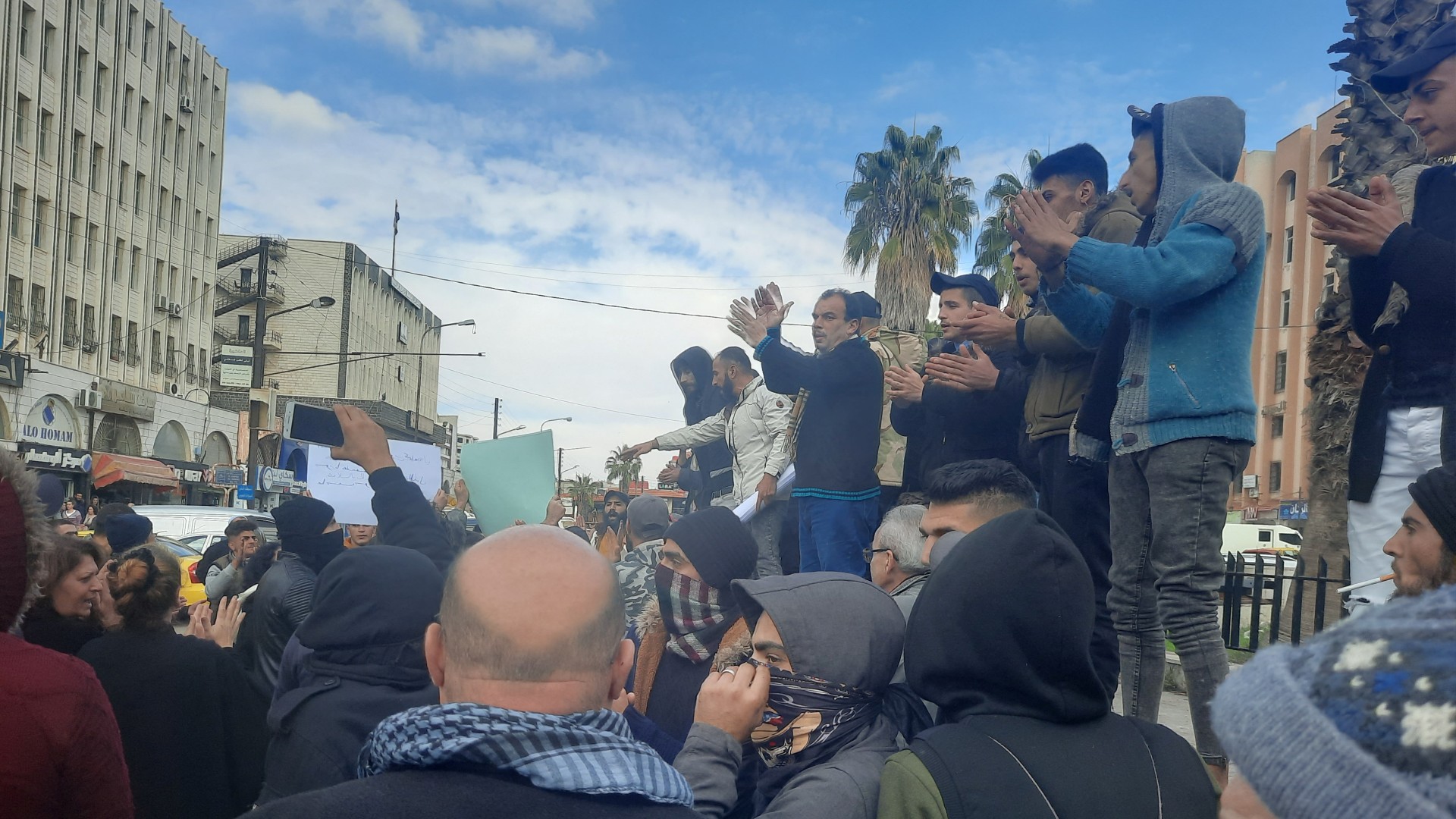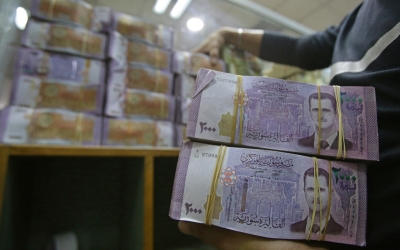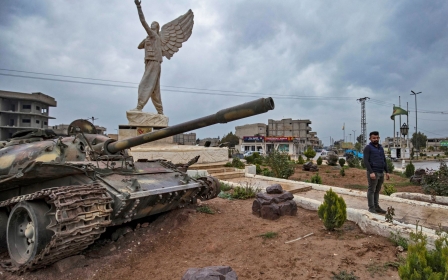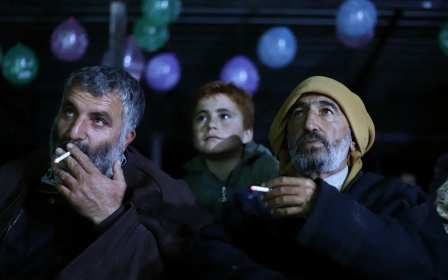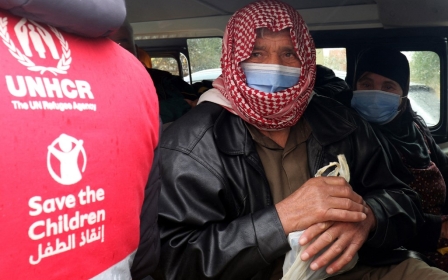After deadly unrest in Sweida, Syria asks: Is there more to come?
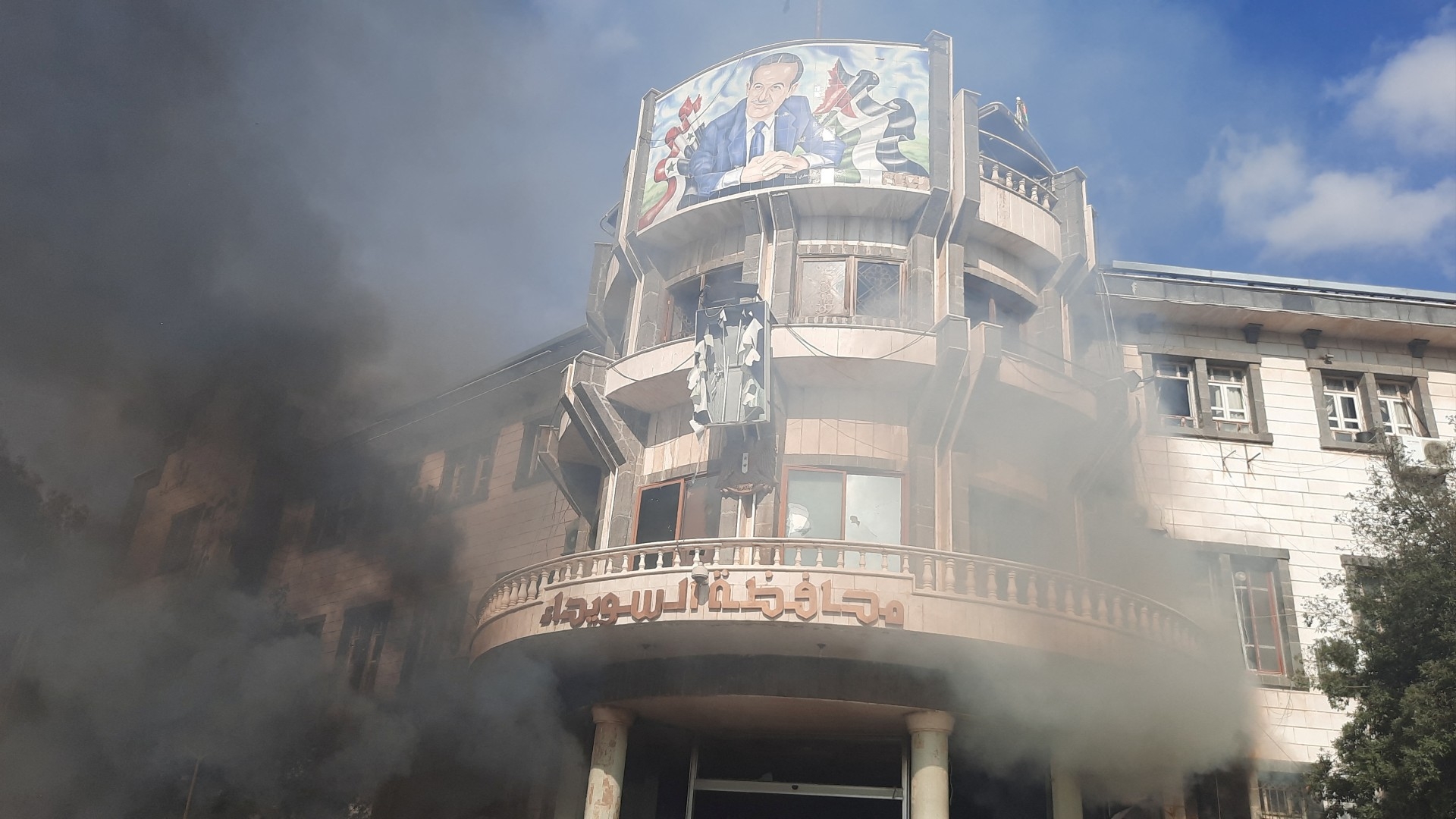
The southern province of Sweida has proven itself an exception in Syria over the past decade. Largely spared fighting, its Druze-majority residents have even occasionally staged furious protests against authorities in Damascus without severe reprisals.
Yet as flames licked up the walls of the governorate building on al-Mashnaqa (Gallows) Square on Sunday, and news broke of a protester and a policeman killed, Syrians of Sweida sensed that these latest demonstrations over the rapidly deteriorating economic situation were "unprecedented".
Sweida enjoys semi-autonomous rule where Druze militiamen known as Rijal al-Karameh (Men of Dignity) are largely responsible for its security.
New MEE newsletter: Jerusalem Dispatch
Sign up to get the latest insights and analysis on Israel-Palestine, alongside Turkey Unpacked and other MEE newsletters
The province maintains a tense and somewhat transactional relationship with the Syrian authorities. Clashes and standoffs are common. However, the latest incident exploded suddenly as austerity measures across the country were announced.
Dwindling fuel supplies, augmented by a sharp increase in prices, has brought the whole of Syria to a gradual standstill, with the decline in services a catalyst for protests. This may only be the beginning.
Conflicting reports
As the rest of Syria watched on, demonstrators in Sweida surrounded the government headquarters in the city before entering, tearing down pictures of President Bashar al-Assad and chanting anti-government slogans.
The Syrian interior ministry described the perpetrators as "a group of outlaws, some of them carrying individual weapons, blocking the road next to al-Mashnaqa roundabout with burning tyres, before firing shots indiscriminately".
"They entered the building by force of arms, broke the office furniture and stole from the building's contents, including official documents, and set the building on fire," the ministry added.
However, accounts seem to differ as Rayyan Maarouf of opposition media page Sweida24 told MEE: "The protests were centred near the governorate building. The situation was very edgy between the protesters and the security forces.
"The demonstrators retaliated to provocation from the security forces by storming the building. It was spontaneous. One protester was killed and 18 were wounded. One policeman was killed too."
Maarouf said many factors led to this new wave of protests. "What the city is witnessing is unprecedented. There is a complete collapse in living conditions and the economic situation is a disaster."
'What the city is witnessing is unprecedented. There is a complete collapse in living conditions and the economic situation is a disaster'
- Rayyan Maarouf, Sweida24
He lays the blame on Damascus. "We attribute this to the neglect of responsibilities by the Syrian state. It failed to offer services for its civilians," he said.
"It could not facilitate the circumstances for people to have heating, electricity, water. It's a crippled country. We get electricity [in Sweida] for one hour a day and there is no fuel, no energy."
Reaction has been mixed. Pro-government journalist Haidar Mustapha accused the protesters of instigating violence in a Facebook post: "If a protest is expressed in the form of targeting government sites, such as the governorate building or the police station, and this is done by burning and crushing in a barbaric and uncivilised manner, then how can it be right?"
However, others refused to be drawn into an escalating situation. Media activist Nasser Dayoub viewed the situation as a signal to Damascus: "What happened in Sweida is a dangerous warning, like a fire alarm telling us there is a major crisis in society and it must be resolved.
"It is urgent to hold the negligent and corrupt accountable and improve the conditions of electricity, heating, fuel, salaries and prices."
Druze are a small minority in Syria - around three percent of the population pre-war - but they form a fundamental part of Syrian society and politics.
Druze religious elders were quick to talk down the tensions. Sheikh Hammoud al-Hinnawi told Syrian state TV: "The country is in crisis and the conditions are harsh for everyone, and we must confront them with patience, prudence and cooperation with everyone."
Mounting economic woes
The delay of oil shipments from Iran to Syria has led to a dire fuel shortage, so bad that the authorities have announced a compulsory holiday to reduce the usage of resources.
State agencies will close for two days in December as public transportation has been badly affected, giving employees a prolonged holiday. Work overtime has already been banned.
This comes on the back of a budget that included a reduction in flour and wheat subsidies, but allowed extra Botox imports. That juxtaposition did not go down well when the budget was announced.
The state of affairs is so bad that even the Syrian Football Federation has announced the postponement of the Syrian Premier League until 2023, as fuel scarcities mean clubs can't provide transportation.
The internal trade ministry has controversially raised the price of diesel and gasoline too, leading to black market fuel doubling in price over the past week. Where non-subsidised petrol costs around 125,000 Syrian lira ($22) per 20 litres, it is now being purchased upwards of 250,000 lira on the black market.
Hassan Hazouri, an economics professor at the University of Aleppo, told the state-backed al-Watan newspaper that the extra two-day holiday would divert crucial resources to places that need it.
"Suspending certain public agencies is a positive decision that will save money and cut operating costs for public and joint-sector government institutions. This will allow more fuel for staff transportation, but this doesn't optimally solve the problem," he said.
As the deterioration of the Syrian economy continues and a crippling winter awaits, the protests in Sweida are just the beginning of a crisis that will rumble on for some time.
Timour Nour al-Deen, an activist who took part in the latest Sweida protests, told MEE that the unrest is not an isolated scenario.
"Sweida has always been neutral, it didn't pledge allegiance to the government or stand against it. This was a decision made by the elders as we see [the war] as a free-for-all massacre in the country from multiple sides and won't participate," Nour al-Deen said.
"However, this situation will continue to escalate as the services are collapsing. Now it is in Sweida, in the future who knows where. All of Syria is suffering economically today."
Middle East Eye delivers independent and unrivalled coverage and analysis of the Middle East, North Africa and beyond. To learn more about republishing this content and the associated fees, please fill out this form. More about MEE can be found here.


